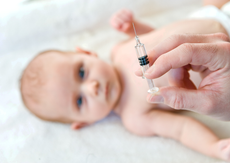The Pentagon’s new game – let’s play belittle the leader
That Putin’s alleged affliction is autism is not surprising

This week Jeremy Hunt revealed his latest plan to help overworked nurses and doctors: an online version of the NHS 111 helpline that will allow ill people to diagnose themselves at home with just a few clicks of the mouse. Apart from the fact that this will surely send cases of debilitating tropical diseases and life-threatening heart conditions through the roof – anyone who has ever paid a visit to Dr Google while running a slight fever will know how quickly symptoms can escalate from man flu to malaria – it is completely unnecessary. The Pentagon already has it covered. It can tell you what is wrong with you before you have even started to feel a bit peaky.
In fact, that’s not strictly true. Whether the Pentagon clinic will give you a check-up or not depends on your status. If you’re the leader of an erstwhile superpower, you can expect the full pat-down – not just a cup-and-cough and a blood pressure check, but movement pattern analysis, neurological assessment, the works. The mind boggles at how much these sort of tests might cost the average American, or their insurers, but if you’re a powerful man, different rules apply. You don’t even need to make an appointment.
Take Vladimir Putin, who has just been diagnosed with “an autistic disorder which affects all of his decisions” by the Office of Net Assessment, a Pentagon think tank set up by Richard Nixon in 1973 to develop long-term military strategy. In secret studies carried out in 2008 and 2011 (now revealed by USA Today), the ONA found that Putin’s “neurological development was significantly interrupted in infancy”, possibly as a result of his mother having a stroke while pregnant.
They arrived at this diagnosis, remarkably, without ever talking to Putin, touching him, examining his behaviour up close, or even scanning his brain. Instead, Brenda Connors, a former professional dancer and naval expert in movement pattern analysis, watched a lot of videos of the Russian President, dating back to 2000.
What might or might not have happened to him in the womb might, or might not, have affected how he thinks and how he moves the right side of his body now. From this the report concludes: “His primary form of compensation for his disorder is extreme control and this is reflected in his decision style and how he governs.”
Extreme control, from a Russian President: there have been more surprising diagnoses in medical history. Of course, this is propaganda – leader‑belittling masquerading as military research. It is no surprise that the world’s leading powers engage in childish undermining like this; with Russia’s keenness to give tit for tat, a leaked report on Barack Obama’s poor motor skills can probably be expected within the month.
That Putin’s alleged affliction turns out to be autism is barely less surprising. It is a speculative diagnosis that is flung about rather too freely when it comes to leaders. In the cult of personality that rules politics, leaders must be human, must be relatable. So to imply that they struggle with that, on a proven medical level, is considered a low blow indeed.
Similarly, “on the spectrum” is an insult that crops up whenever a powerful person – be it a prime minister or a Silicon Valley CEO – is perceived to lack the human touch. They might be busy or driven, shy or geeky, or simply a bit eccentric, but those adjectives lack the punch of an ersatz psychological assessment. Never mind that it is hurtful to the thousands of people who really do suffer from the disorder to see it used as such a crude weapon.
There is quite possibly something different about the brains of very successful people, but it is surely more germane to assess leaders on the decisions they make – the ceasefires they do or do not call, say – rather than on the putative biological and genetic reasons that lie behind those decisions. Certainly, the time and dollars spent watching videos of Putin and the way he moves his right hand here or his left eyebrow there might have been better spent on medical research instead.



Join our commenting forum
Join thought-provoking conversations, follow other Independent readers and see their replies